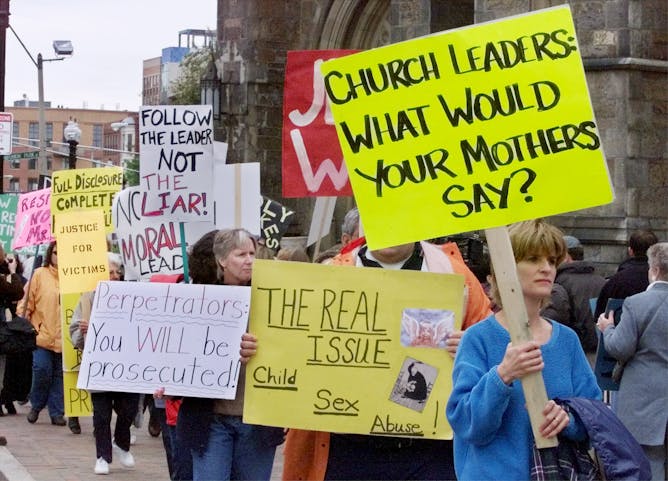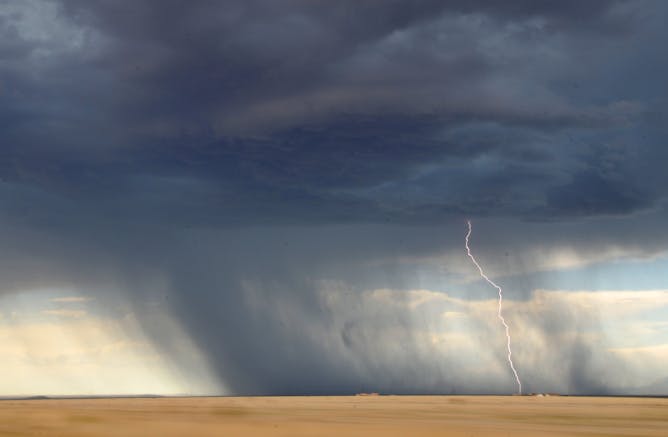|
|
|
Editor's note
|
|
Sen. John McCain, who died Saturday, spent his life committed to ideals that, by the end of his life, had fallen from favor. American University scholar Elizabeth Sherman writes that the country’s repudiation of the principles he championed may put the nation at risk. And Sherman explains how powerful trends in American politics, including partisan polarization, thwarted McCain’s lifelong ambition to be president.
Following a recent Pennsylvania grand jury report that revealed a shocking level of clergy abuse over a long period of time in the Catholic Church, Pope Francis wrote a letter acknowledging that the church had abandoned the child victims. Arizona State’s Carolyn M. Warner argues that an important, but seldom understood, part of this abandonment is the Canon law, which only the Pope has the power to change and which could prevent future
acts of abuse.
And have you ever detected a storm’s first drops not by feeling or seeing them, but by smelling the rain? That distinctive scent is called petrichor. Texas A&M’s Tim Logan explains where it comes from and how it travels in advance of the downpour.
|
Naomi Schalit
Senior Editor, Politics + Society
|

|
|
Top stories
|

Republican presidential candidate Sen. John McCain arrives for a news conference in Annapolis, Md.
REUTERS/Jim Young
Elizabeth Sherman, American University School of Public Affairs
Sen. John McCain, who died Saturday, ended his career with growing repudiation by his party and the public for positions, from national defense to bipartisanship, that he had long embodied.
|

A 2002 protest against clergy sex abuse.
Jim Bourg/Reuters
Carolyn M. Warner, Arizona State University
An expert explains how a complex set of canon laws and trials are the major obstacle to holding priests accountable. The power to take action is often vested in the Vatican.
|

Your nose knows what’s on the way.
Lucy Chian/Unsplash
Tim Logan, Texas A&M University
A weather expert explains where petrichor – that pleasant, earthy scent that accompanies a storm's first raindrops – comes from.
|
|
|
Environment + Energy
|
-
Andrew G. Keeler, East Carolina University; Dylan McNamara, University of North Carolina Wilmington; Jennifer Irish, Virginia Tech
Many US coastal towns are building defenses to protect against rising seas and storms. This can encourage people to stay in place when they should be moving inland.
|
|
|
|
|
|
Politics + Society
|
-
Gary M. Grossman, Arizona State University
The financial crisis provoked by the lira's fall isn't the true drama in Turkey. The real drama is a democratic transformation threatens the increasingly authoritarian president, Recep Tayyip Erdoğan.
-
Nisha Bellinger, Boise State University
India is the most dangerous country for women in 2018, according to a new survey. Putting more women in government is a necessary first step in preventing rape and better protecting abuse survivors.
|
|
|
|
| |
| |
|
|
|
|
|
|
|